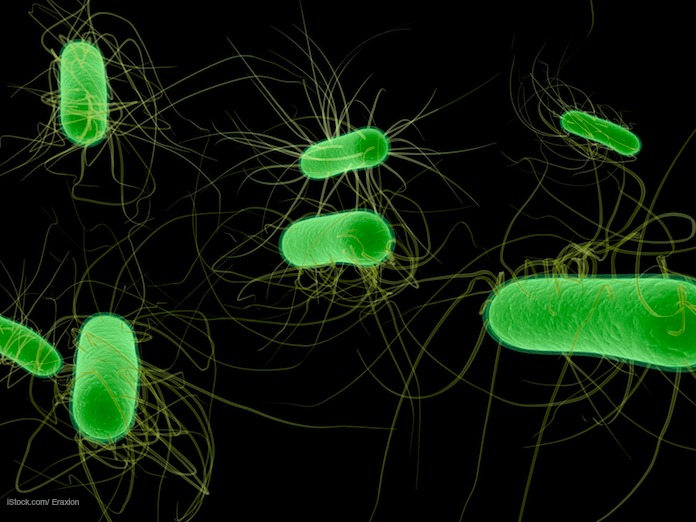According to the Sturgeon R-V School District in Sturgeon, Missouri in Boone County, an E. coli outbreak has sickened four students at the Sturgeon Elementary School. All of the students were in the early Elementary classes. The Boone County Health Department has confirmed the illnesses, according to a letter sent to preK-8 parents and high school parents on September 7, 2016.
Andrea Warner, Public Information Office of the Columbia/Boone County Public Health and Human Services, told Food Poisoning Bulletin that there are four confirmed cases of STEC O157:H7 and two probable cases. All of those sickened are preschool and school-aged children. The first onset date is August 12, 2016 and the most recent is August 30, 2016.

The infection was diagnosed before the school year start and “contagion most likely resulted by contact from a shared community facility,” according to the letter. The school district is working with the Health Department to prevent spread of the disease. There is no word on what that “community facility” may be.
The Health Department has also confirmed one case outside of the Sturgeon community, but within Boone county, and is also investigating E. coli illnesses in several adjoining states. It only takes 10 E. coli bacteria to make someone sick. The bacteria spreads through the fecal-oral route.
Any children who suffer from diarrhea should be tested for E. coli, according to one of the letters send by Mary Wolf, Lead Nurse. If any child has blood in the stool, parents should immediately notify their physicians and seek treatment. Any student with a “history or symptom of diarrhea at school will be sent home until symptoms are cleared by the health department,” according to the letter.
E. coli infections are most serious in young children. This infection can progress to hemolytic uremic syndrome (HUS), a potentially deadly complication, most easily in children under the age of five. The E. coli bacteria produce Shiga toxins, which destroy red blood cells. Those cells can then clog small tubes in the kidneys, causing kidney failure.
The symptoms of an E. coli infection includes severe abdominal cramps, bloody diarrhea, nausea, and vomiting. Fever is usually mild. If this infection is treated with antibiotics, it can progress to HUS. If your child or anyone is suffering from these symptoms they should be taken to a doctor.
The symptoms of HUS include little or no urine output, lethargy and fatigue, loss of pink color in cheeks and eyelids, easy bruising, bleeding from the nose and mouth, and a skin rash. Anyone exhibiting these symptoms must be immediately taken to a doctor.
To help prevent the spread of this illness, it’s important that everyone be very careful with personal hygiene. Always wash your hands after using the bathroom or caring for someone who is sick. Wash with soap and running water and scrub your hands vigorously. Then dry them vigorously with a clean towel. Also clean and disinfect your toilet and bathrooms with bleach disinfectant every week. Don’t use the same towels in the bathroom and the kitchen area.
If you are sick, especially with a diarrheal illness, stay home. This is particularly important if you work in a healthcare setting, in a school or daycare, or in the food service industry.
Also, avoid drinking raw milk and eating raw milk products, and always cook meats, especially ground meats, to a temperature of 160°F as checked with a reliable food thermometer. And remember to avoid cross-contamination between raw meats and foods that are eaten without cooking.




